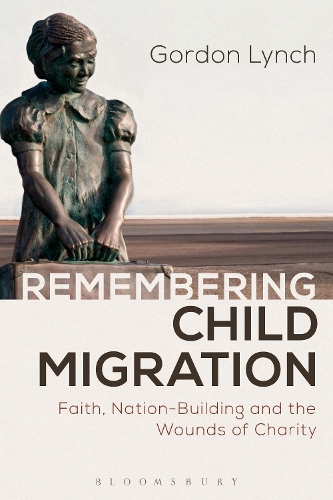
Remembering Child Migration: Faith, Nation-Building and the Wounds of Charity
(Paperback)
Available Formats
Publishing Details
Remembering Child Migration: Faith, Nation-Building and the Wounds of Charity
By (Author) Gordon Lynch
Bloomsbury Publishing PLC
Bloomsbury Academic
3rd December 2015
United Kingdom
Classifications
Professional and Scholarly
Non Fiction
History of religion
Child welfare and youth services
Migration, immigration and emigration
261.832
Physical Properties
Paperback
192
Width 156mm, Height 234mm
300g
Description
Between 1850 and 1970, around three hundred thousand children were sent to new homes through child migration programmes run by churches, charities and religious orders in the United States and the United Kingdom. Intended as humanitarian initiatives to save children from social and moral harm and to build them up as national and imperial citizens, these schemes have in many cases since become the focus of public censure, apology and sometimes financial redress. Remembering Child Migration is the first book to examine both the American orphan train programmes and Britains child migration schemes to its imperial colonies. Setting their work in historical context, it discusses their assumptions, methods and effects on the lives of those they claimed to help. Rather than seeing them as reflecting conventional child-care practice of their time, the book demonstrates that they were subject to criticism for much of the period in which they operated. Noting similarities between the American orphan trains and early British migration schemes to Canada, it also shows how later British child migration schemes to Australia constituted a reversal of what had been understood to be good practice in the late Victorian period. At its heart, the book considers how welfare interventions motivated by humanitarian piety came to have such harmful effects in the lives of many child migrants. By examining how strong moral motivations can deflect critical reflection, legitimise power and build unwarranted bonds of trust, it explores the promise and risks of humanitarian sentiment.
Reviews
This thoroughly researched comparative study shows how the child migration schemes operated in the past by prestigious charitable organisations in the United States and the United Kingdom, once widely admired, are now seen to have caused considerable damage to many of the deprived and disadvantaged children they were dedicated to rescue and redeem. To explain the long-lasting commitment to such programmes, Professor Lynch focuses especially on the moral culture, particularly derived from Christian ethics, which motivated those managing these operations. It also inspired their marketing as moral projects to attract financial support. But the book also shows how the moral certainty of those responsible made them resistant to criticism and unwilling to consider the harm they could be inflicting on the vulnerable. The book raises profound and disquieting issues about humanitarian piety with which childcare and any other organisations bent on doing good today ought to engage. * Stephen Constantine, Emeritus Professor of History, Lancaster University, UK *
Gordon Lynch has written a sensitive and searching book that will force its readers to think about how constitutive are our ideas about right societies. Rather than sit in simple judgment of those who forced the migration of hundreds of thousands of children under diverse circumstances, Lynch asks with great interpretive acuity: What now do we do with equal humanitarian fervor and and missionary blindness Through an expose of the suffering wrought through child migration, this book presses us to think about how suffering is inherent to our bureaucracies, our social theories, and our plots for civilization. * Kathryn Lofton, Professor of Religious Studies, Yale University, USA *
In keeping with Lynchs reading, contemporary organizations would do well to examine not only their moral aims, but also attend to their unintended consequences. * Reading Religion *
Author Bio
Gordon Lynch is Michael Ramsey Professor of Modern Theology at the University of Kent. He has written widely on moral meanings in modern societies, including The Sacred in The Modern World: A Cultural Sociological Approach and On the Sacred.
